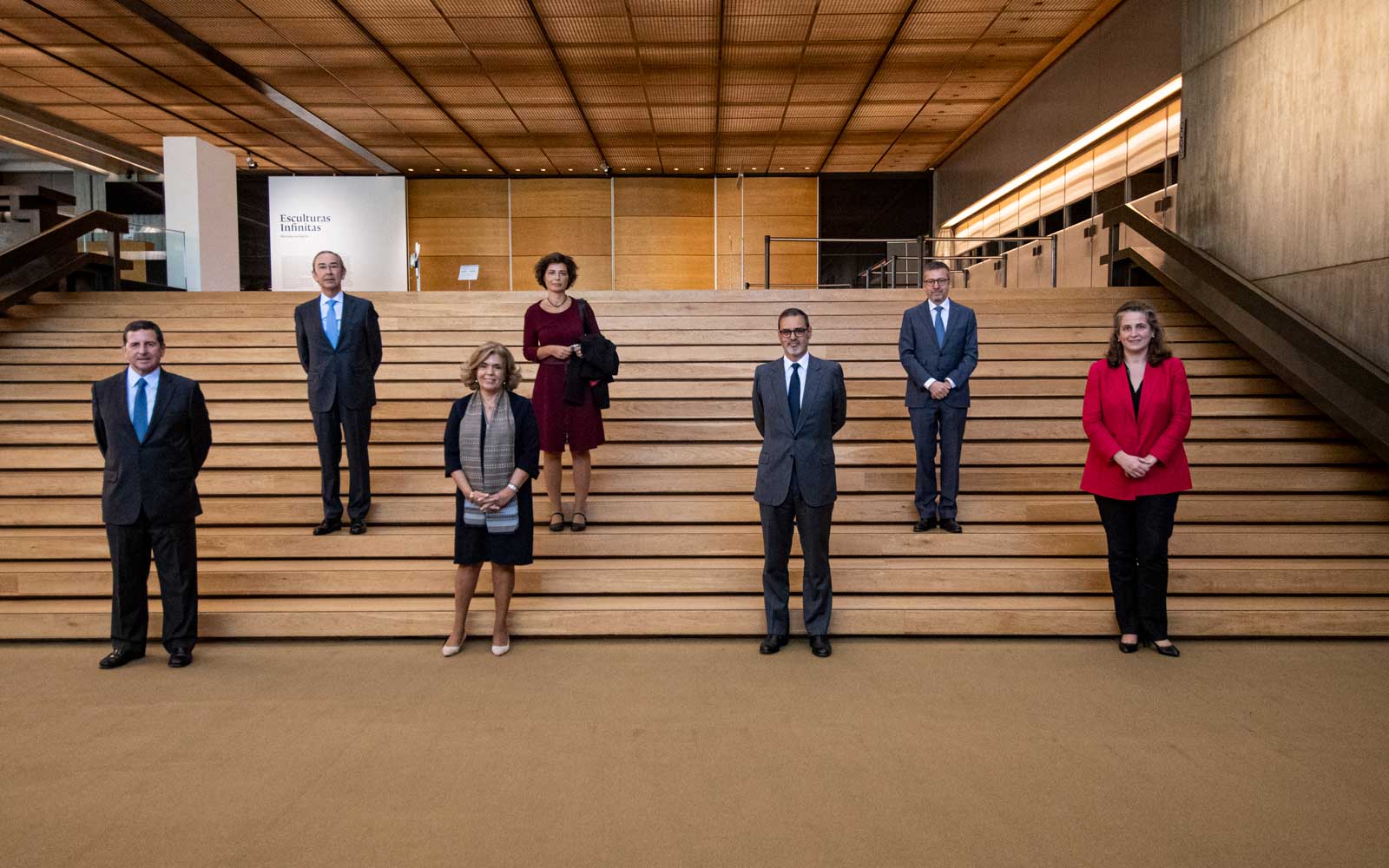Gulbenkian and CUF establish a partnership

The President of the Calouste Gulbenkian Foundation, Isabel Mota, and the President of CUF, Salvador de Mello, today signed a collaborative protocol that seeks to leverage the synergies existing between the fields of action of these two institutions and bring about the exchange of knowledge while encouraging cooperation and scientific research, stimulating the training of health professionals, providing support to high potential initiatives and boosting scientific publications.
The Gulbenkian Foundation, through the IGC – the Gulbenkian Institute of Science, strives to promote scientific culture and values in society and develop state-of-the-art research across the fields of immunology, physiology, oncology, infectious diseases, epidemiology, microbiome, genomic and big data research; CUF, in turn, as a provider of health services of excellence, with over 75 years of experience in this field, runs 19 healthcare units across Portugal and contains vast potential for clinical knowledge appropriate to the development of research projects across a range of areas with relevant impacts on the health of citizens. Hence, the Gulbenkian Foundation brings the research component to this partnership while CUF provides the clinical component.
According to Isabel Mota, “the partnership reflects an essential proximation between a scientific research institute of excellence and a leading group in the provision of healthcare services, deepening the relationship between science and hospital practice, which represents a crucial step to advancing with its own research; thus interconnecting fundamental science to the wellbeing of persons. The Calouste Gulbenkian Foundation President furthermore emphasised how “today, science and innovation do not take place in isolation. They emerge out of constant collaboration and hence I believe that our partnership shall lead us to do more and better, connecting science and society while contributing to better health policies and practices.”
In turn, Salvador de Mello highlights the importance of this partnership “to the progress of clinical research and the training of health professionals in Portugal”, adding that “the continued improvement in healthcare depends on the deepening articulation among all the entities making up the science and research ecosystem. Only thus does it become possible to share and dynamically deploy scientific knowledge and bring about the best in healthcare practices”. The CUF President furthermore highlighted that this partnership represented “an investment in research that is truly placed in the service of the health of the Portuguese”.
Aware of the importance of the role of scientific research in fostering sustainability and the competitiveness of health systems, this cooperation between the Gulbenkian Foundation and CUF shall involve the establishing of specific partnerships for the implementation of scientific and clinical research study projects, backing high potential proposals – with a particular emphasis on the technological and digital health dimensions–, the identification and protection of technological innovations and scientific knowledge, training professionals, running internships, publishing scientific papers, exchanging information and complementary specialist services.
To provide but one example, the two institutions are to cooperate within the scope of the activities of the Covid-19 project of the Calouste Gulbenkian Foundation – the IGC – the Gulbenkian Institute of Science. The IGC, with six decades of experience and 30 working research groups dedicated to biological and biomedical research, has also developed innovative doctoral degree programs that have already involved various international leaders. This specific partnership enables the development of research and innovation activities able to provide new diagnostic tools to respond to the needs of the population and the healthcare services within the pandemic context as well as generating more and better knowledge about the behaviour of the virus and the diseases caused, thereby guaranteeing the production of critical information for the definition of future strategies.
